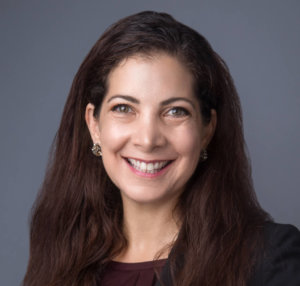Alt Legal Webinar Let’s Not Agree 2(D)isagree: Combatting likelihood of confusion office actions
Alt Legal Team | August 10, 2022
This webinar was recorded on September 9, 2022.
One of the most common—and dreaded—office actions is based on Section 2(d): likelihood of confusion. This happens when USPTO trademark examiners believe the applied-for mark is too similar to a registered trademark. Successfully responding to §2(d) office actions requires both a thoughtful strategy and compelling arguments. Join us for a webinar where M.J. Williams, partner at Wissing Miller LLP, shares tips and discusses approaches that have proven effective in office action responses. With an eye for efficiency and opportunities, M.J. offers practical solutions for a range of scenarios, including:
- Demonstrating the marks are dissimilar
- Distancing the marks’ goods or services
- Proving the cited mark is weak
- Attacking the cited registration
- Negotiating coexistence with the cited mark’s owner
View recording here (free registration required).
You can download the presentation materials here.
Resources
- Overcoming a §2(d) Likelihood of Confusion Office Action | Part I: Securing a Trademark Registration on the Principal Register
- Overcoming a §2(d) Likelihood of Confusion Office Action | Part 2: Entering into a Consent Agreement with Parties Cited in Refusal
- Overcoming a §2(d) Likelihood of Confusion Office Action | Part 3: Canceling the Cited Mark and Seeking Registration on the Supplemental Register
- Assuming the best of examiners is something that this anonymous USPTO trademark examiner mentioned in this set of tips.
- Coordinated classes can be relevant even if the goods aren’t in the same class. You can find more info about coordinated classes here.
- Here’s an article from Alt Legal about responding to §2(d) office actions.
Speaker Bio
M.J. Williams, Partner at Wissing Miller LLP
 M.J. Williams is a partner at Wissing Miller LLP, a boutique intellectual property firm in New York City. She provides counsel and representation on trademarks and copyrights to creatives and creative businesses, from start-ups to global corporations. She also supports reporters, media companies, and activists with Freedom of Information matters, frequently litigating against law enforcement agencies for release of public records.
M.J. Williams is a partner at Wissing Miller LLP, a boutique intellectual property firm in New York City. She provides counsel and representation on trademarks and copyrights to creatives and creative businesses, from start-ups to global corporations. She also supports reporters, media companies, and activists with Freedom of Information matters, frequently litigating against law enforcement agencies for release of public records.